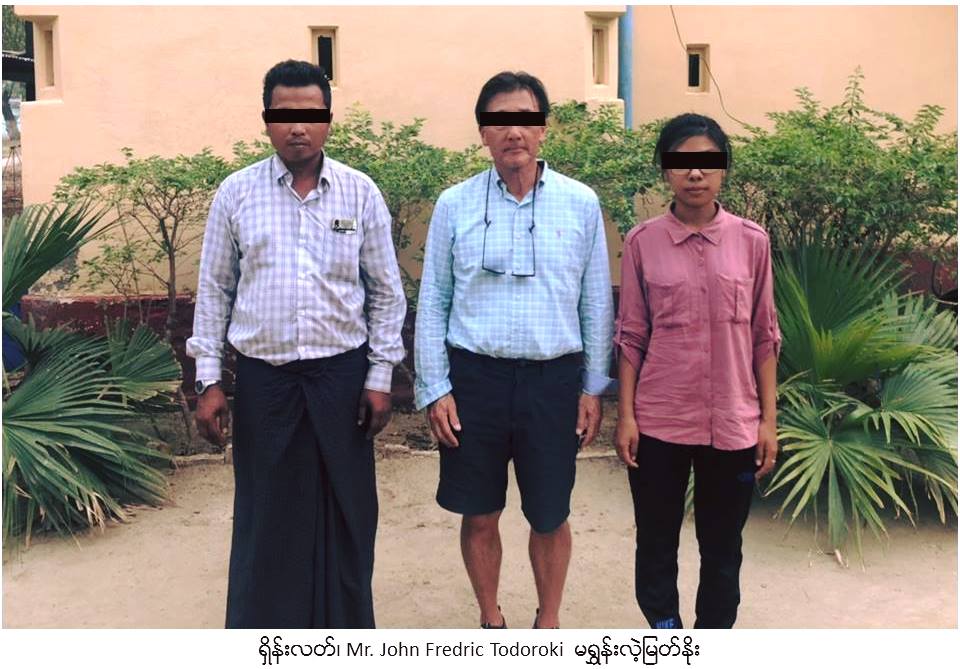
An American and two Myanmar nationals have been arrested during a raid on a suspected marijuana plantation about 60 kilometres west of Mandalay.
US citizen John Fredric Todoroki, 63, along with Shein Latt, 37, and Ma Shun Le Myat Noe, 23, were detained under the 1993 Anti-Narcotics Drug and Psychotropic Substances Law, the Central Committee for Drug Abuse Control (CCDAC) announced yesterday.
Another man, Alexander Skemp Todoroki, is wanted in connection with the case, stated the committee.
Marijuana production under the law carries a minimum 15-year sentence to the death penalty, although that is currently not used in the country.
Police and officials from the chemical inspection and food and drug administration departments raided the plantation in Myotha Industrial Park in Ngunzun township, Myingyan district on April 22.
Authorities seized 349,300 suspected marijuana plants and 5,200 seedlings along with 380 kilogrammes of hemp seedlings and 1,804 grams of hemp oil, reported state media.
Hemp and marijuana plants are both cannabis species and look similar. However each has clear distinctions on close inspection, and their compounds widely differ.
Marijuana plants have far higher levels of THC, or tetrahydrocannabinol—the psychoactive element that, basically, gets people ‘high’.
Hemp, on the other hand, has only tiny traces of THC, and is used for clothing, paper, dietary supplements, hemp-oil skin products, and more. CBD, or cannabidiol, is extracted from the plant and used for THC-free health products.
CCDAC also listed a number of chemicals found on site, including 1 litre of formic acid, 45,6 litres of liquid ethanol, 22.8 litres of alcohol, six litres of liquid fertiliser, five litres of liquid acetone, five litres of liquid acetonitrile, 12.5 litres of liquid methanol, and 500 grams of ammonium phosphate.
U Aung Win Khine, who runs the industrial park, told the Myanmar Times that an American company was permitted to grow marijuana-like plants for one year for free on 12 hectares in the industrial zone.
He denied the plants were marijuana and said that research was being done to look for a cure for cancer, adding that the operation would create 100-200 jobs.
Myanmar is the world’s second largest producer of opium and a major producer of methamphetamines in Southeast Asia. Last year President U Win Myint formed an anti-narcotics taskforce that offers rewards for information on drug abuse, trafficking and production.

